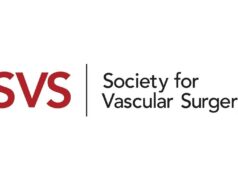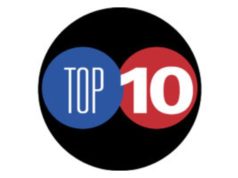 The Association of Program Directors in Vascular Surgery (APDVS) has released a new ebook designed to enhance vascular surgery education for medical students. According to developers, the aim of The APDVS Medical Student Curriculum is to broaden the medical student’s clerkship curriculum, in line with the APDVS’s goal to provide a solid foundation in vascular surgery pathology and treatment.
The Association of Program Directors in Vascular Surgery (APDVS) has released a new ebook designed to enhance vascular surgery education for medical students. According to developers, the aim of The APDVS Medical Student Curriculum is to broaden the medical student’s clerkship curriculum, in line with the APDVS’s goal to provide a solid foundation in vascular surgery pathology and treatment.
“Unfortunately, the notion that assessment drives education holds true. Vascular surgery has very limited representation on the surgery shelf and Step exams and so finding the motivation to study vascular topics can be tough. For students on vascular surgery rotations, intrinsic motivation plays an equal if not larger role than extrinsic motivation. We created a resource that makes intrinsically motivated vascular surgery studying accessible, level-appropriate and interesting,” said Ezra Schwartz, MD, co-editor and lead developer of the project.
The ebook covers key domains of vascular surgery, offering both the fundamentals and opportunities for deeper dives. Originally published in January 2023, the APDVS Medical Student Curriculum project was years in the making. The idea was born from research spearheaded by Chelsea Dorsey, MD, of the University of Chicago, where she did a national needs assessment to understand the curriculum for medical students.
The results revealed that neither the American College of Surgeons (ACS) nor the Society for Vascular Surgery (SVS) provided curriculum recommendations for medical students rotating on a vascular surgery service, resulting in a gap in education geared towards medical students with minimal knowledge of vascular services.
Two studies by Dorsey et al are particularly relevant to the goals of the ebook: “Vascular surgery curriculum for medical students: A national targeted needs assessment” and “The value of a vascular surgery curriculum for clinical medical students: Results of a national survey of nonvascular educators.”
“[These articles] demonstrate the need to have a standardized curriculum and use the Delphi method to determine the topics that we should prioritize,” said Schwartz.
Critical contributors have supported the ebook’s development, including Sharif Ellozy, MD, director of the New York Presbyterian Hospital (Columbia and Cornell Campus); Adam Johnson, MD, of Duke Health, the Audible Bleeding Vascular Surgery Exam Prep project and the SVS Resident Stu-dent Outreach Committee (RSOC). Additionally, Schwartz credits his thesis mentor, Traci Wolbrink, MD, of Boston Children’s Hospital, founder of the modular online learning platform OPENPediatrics.
The ebook includes supplementary materials, such as slide decks, pre- and post-reading questions and teaching cases developed by the APDVS in addition to highlighting highly relevant outside content such as Audible Bleeding podcast episodes. One advantage of publishing an ebook is the ease of releasing updates, with the title set to continue to create and share additional slide decks, questions and podcast episodes, the developers said.
“We strive to present each chapter in the preferred modalities for every learner type. This means sharing the information in a traditional textbook style, a PowerPoint presentation, a podcast, etc. We want students to be able to learn the material on their way to the hospital if they’re biking or on public transportation,” summarized Schwartz.
“We want to cover all learning styles because everyone learns differently, and time is a limited resource in the life of a medical student. We want to make sure that people can learn vascular surgery in the way they prefer.”
There are three main points developers hope to convey to the vascular community: that the ebook is comprehensive, utilitarian and concise.
“As vascular surgery continues to evolve and differentiate itself from general surgery, the surgical curricula at many medical schools can leave students poorly equipped to have meaningful discussions about complex issues in vascular surgery,” said Mark Basilious, a fourth-year medical student at Weill Cornell Medical College in New York City and co-editor of the ebook. “This resource is an effort to democratize knowledge in this niche field and make it accessible to trainees everywhere. We are deeply grateful for the enormous contributions of our student and trainee authors, and we extend our heartfelt thanks to our expert senior authors for volunteering their time to review the product as it rolls out.”
Drayson Campbell, a fourth-year medical student at the Ohio State University College of Medicine, feels the opportunity to contribute to a practical, convenient and accessible resource for medical students like himself has been incredibly fulfilling. Based on his experience, transitioning from standardized pre-clinical curricula to caring for vascular surgery patients has presented a steep learning curve.
“Numerous challenges exist in navigating the complex practice guidelines written for trainees and attending vascular surgeons, and these are amplified by the gap in medical education. The ability to contribute to a resource written for medical students in their clinical years to facilitate the next generation’s transition has been a satisfying way to give back to the community that has given me so much,” said Campbell.
To learn more about the needs assessment research, visit vascular.org/APDVS-ebook.












